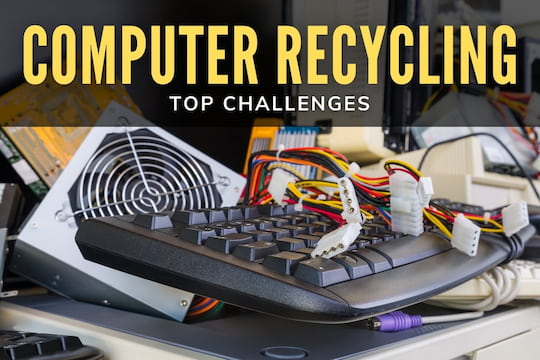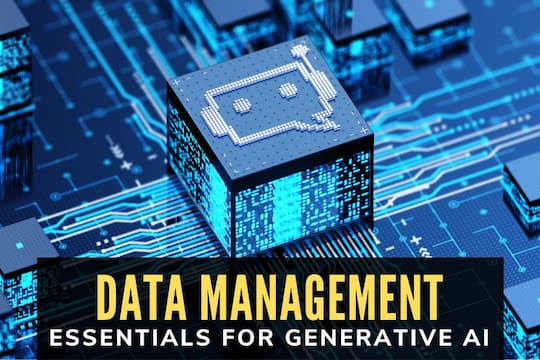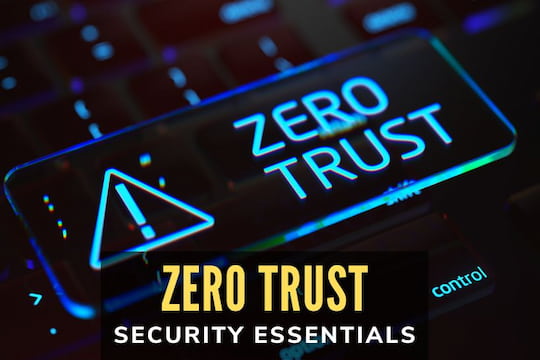Everyone who uses a computer should know that these machines have a lifespan of 5 to 10 years. Depending on the model, some computers last longer if they've been well maintained. Eventually, you must decide what to do with old computing equipment, which tends to be selling or donating the item to keep it out of a landfill. Here are important computer recycling challenges and solutions for the future.
What is E-Waste?

E-waste is electronic technology that has reached its end-of-life cycle and must be considered for reusing, repurposing, recycling, or disposal. Ideally, e-waste is kept out of a landfill, where toxic chemicals accumulate. Studying electronic recycling FAQs can help you become more familiar with eco-friendly ways of dealing with e-waste.
The top two nations producing the most e-waste are the United States and China. As the population grows, so does e-waste, which is why governments worldwide have begun regulating how electronic gadgets are disposed of. E-waste accumulation is expected to increase to nearly 75 million tons by 2030, exponentially higher than 2000 or even 2020 levels.
Major E-Waste Recycling Challenges
American landfills now ban items that contain electronic circuit boards. That means e-waste requires special handling, or you can face heavy fines. Here are some of the essential challenging issues facing recycling centers that collect e-waste:
Low Percentage of E-Waste Recycling

According to the EPA, only 12.5 percent of e-waste gets recycled in America. The agency has identified e-waste as the "fastest-growing municipal waste stream in the United States." On a global level, according to U.N. estimates, about 17 percent of e-waste gets recycled, while Europe recycles about 42 percent of its e-waste. These statistics should be a wake-up call for Americans to take leadership of the problem.
Legislation has helped stir interest among manufacturers in recycling. The Electronic Waste Recycling Act of 2003 is an example of how the government has stepped in to encourage recycling through funding programs. The Universal Waste Law of 2006 was another influential government move to go greener by outlawing the disposal of batteries and fluorescent light bulbs in the trash.
Health Concerns Related to E-Waste
Another of the most interesting computer recycling challenges and solutions in the coming years will be how to combat the harmful effects of exposure to e-waste. Old electronic components were typically made of materials that contained dangerous toxins such as mercury, arsenic, lead, and cadmium. Exposure to dangerous materials, chemicals, and substances can lead to health problems such as cancer and skin disorders. The Environmental Protection Agency (EPA) is working on regulations to reduce U.S. exports of products that contain elements harmful to humans, animals, and the environment.
Promotion of E-Waste Disposal Centers

Getting rid of old electronic products has become an awkward issue in many places where it's no longer legal to throw away e-waste in regular trash bins. If consumers cannot sell or donate their old gadgets, they must know where to take them for disposal. While there still seems to be widespread confusion about e-waste disposal, there are simple ways to dispose of just about all old electronics. It's mainly a matter of elevating public awareness about existing recycling programs.
Popular home improvement stores such as Home Depot, Lowe's, and Ikea accept CFLs for their recycling programs. Meanwhile, Office Max, Staples, and Office Depot accept ink and toner cartridges. Best Buy and Earth911.org accept old batteries. Various recyclers in major cities accept a wide range of computing devices to reuse, refurbish or recycle.
Conclusion
These computer recycling challenges and solutions must be spread via word of mouth. The more consumers learn their role in a circular ecosystem, the greater chances of more widespread electronic recycling. Contact us at West Coast Computer Recycler to learn more about what you can do with your old computers to protect yourself from fines and help promote sustainability.



























